I love the scent of lilacs - delicate yet powerful enough to fill my entire yard with fragrance.
Lilacs are one of my favorite spring flowering shrubs.
Of course, I am not the only one who loves the scent of lilacs.
It seems to be one of the more popular scents out there - and one that many people wish to preserve.
While you can get reblooming lilacs - the scent simply is not comparable in my experience to that of the old fashion lilacs.
Thus I wanted to share with you one of the oldest methods known to preserve floral scents - enfleurage.
Reasons To Preserve The Scent Of Lilacs
Sadly the old-fashion lilacs - which I think are the most fragrant - quit blooming long before I get tired of the scent.
While it is possible to dry lilacs, the scent is lost in my experience.
This is why making lilac potpourri requires the addition of a lilac scented oil.
The best method I have found to preserve the scent so I can use it throughout the year is enfleurage.
I'm all about finding ways to do it yourself because I like to be as self sufficient as possible.
Enfleurage Makes Preserving The Scent Of Lilacs Easy
The oldest-known method for fragrance extraction and preservation of flower essences is known as enfleurage.
This method, which involves pressing the flowers into some type of lard or oil, is used for delicate flowers whose scent cannot be preserved well using typical methods such as tincturing or distillation.
It is ideal for homesteaders or anyone who wishes to preserve the scent of the flowers they grow.
Delicate flowers such as lilac work well using this method.
This is easy to do at home and the resulting product can be used in a variety of ways.
Lard is the typical fat used for this process, but a variety of oils can be used including the one I chose, organic cocoa butter.
Cocoa butter can be added to a variety of homemade body products.
Lilac infused cocoa butter will be the perfect addition to my goat milk soap I will be making soon.
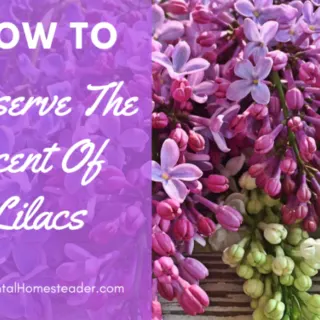
How To Extract The Amazing Scent Of Lilac Flowers
Do you love the lilac scent? Learn how to preserve the scent of lilacs yourself. You can use the fragrance extraction in homemade bath and body products.
Materials
- Fresh lilac flowers
- Organic cocoa butter
Instructions
- Pick the lilac flowers early in the morning right after the dew has dried.
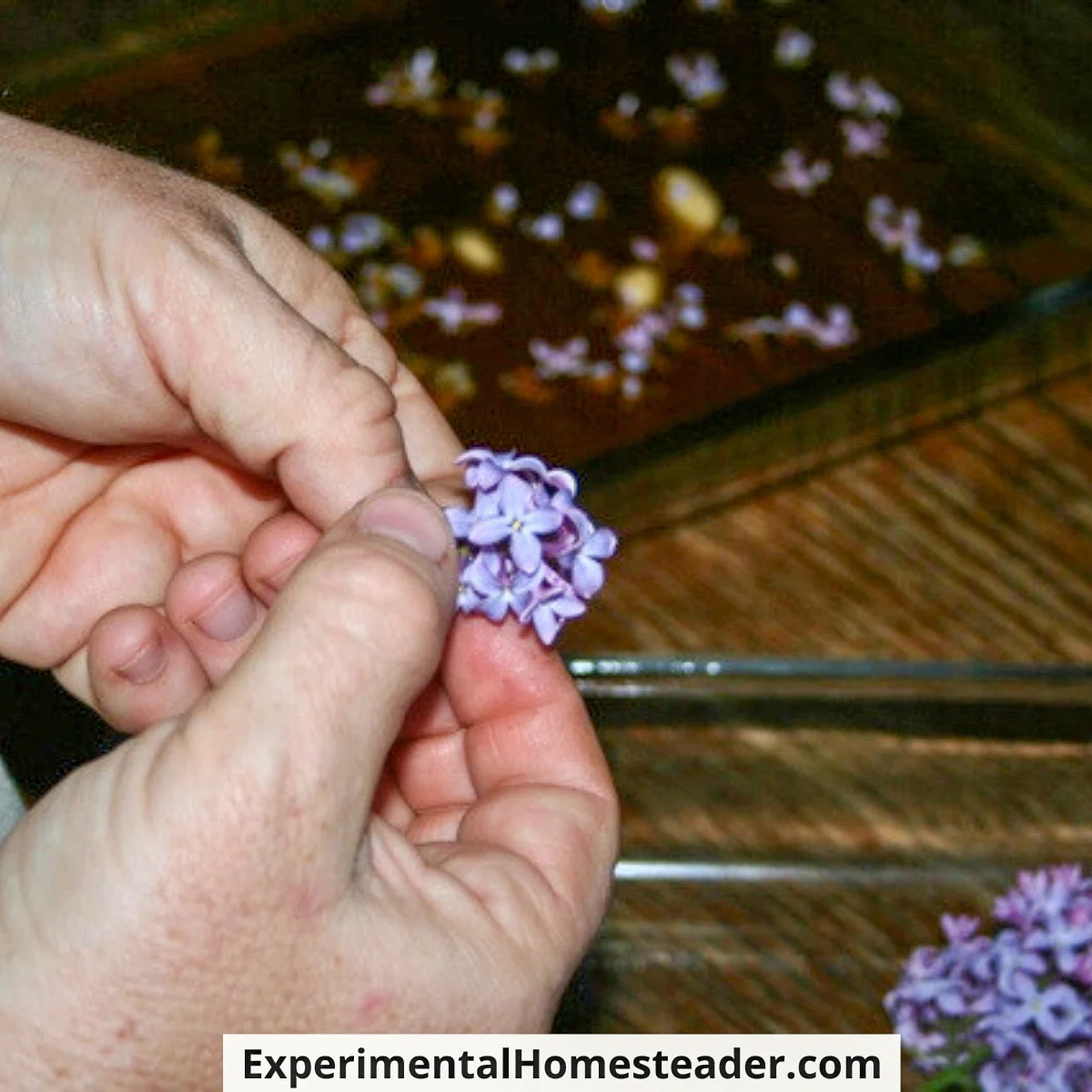
- Remove the individual flowers from the main branch and put them into a pan. Remove as much of the stem as possible.
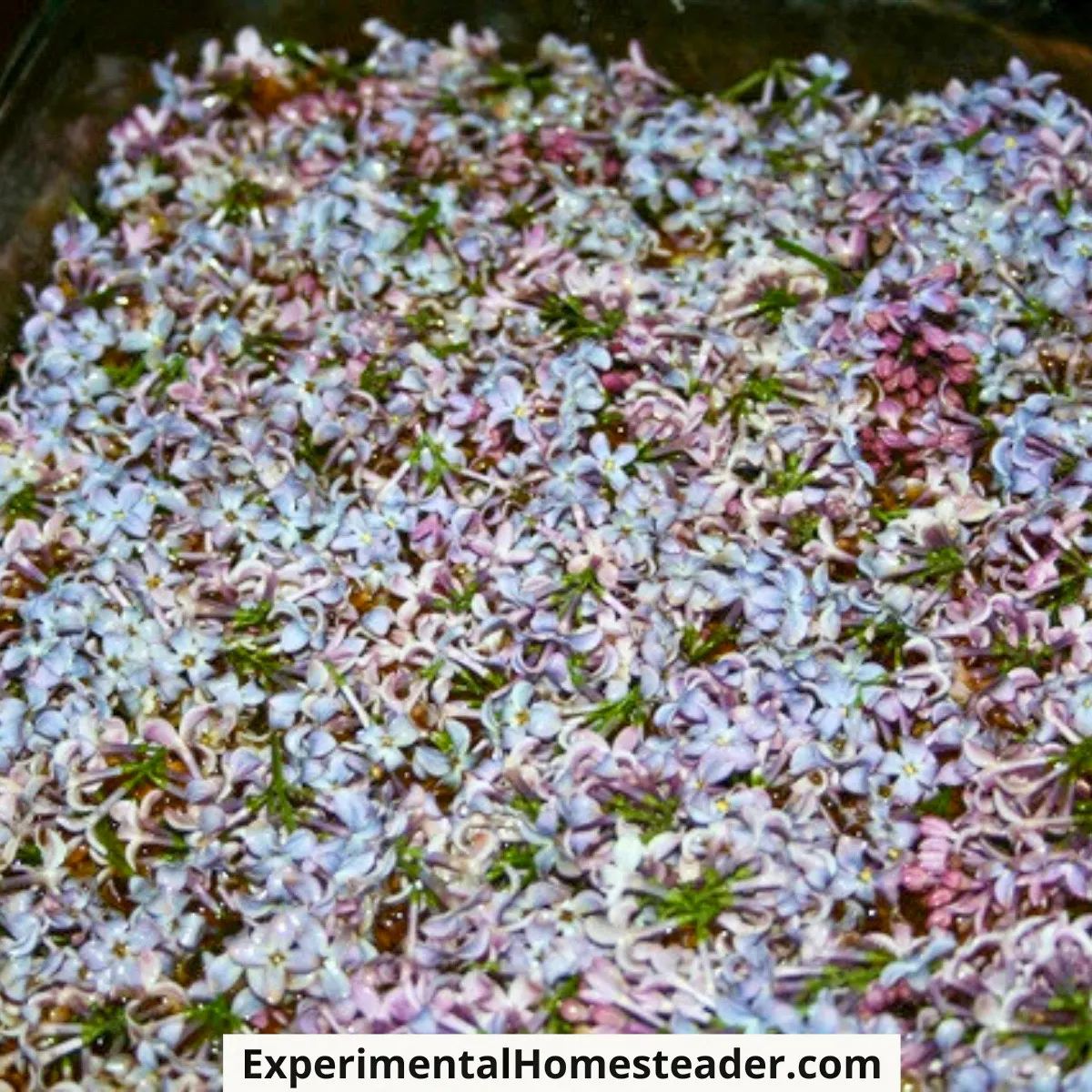
- Set up the double boiler, which is two pans, one set inside of the other, that is used to melt chocolate, oil, candle and a variety of other products that could burn or catch on fire easily if they were set directly on a stove burner. The pan on the bottom should be filled about half-full of water. The smaller pan which will set inside the larger one should contain the oil. I chose organic cocoa butter.
- Bring the pan with the water to a rolling boil.
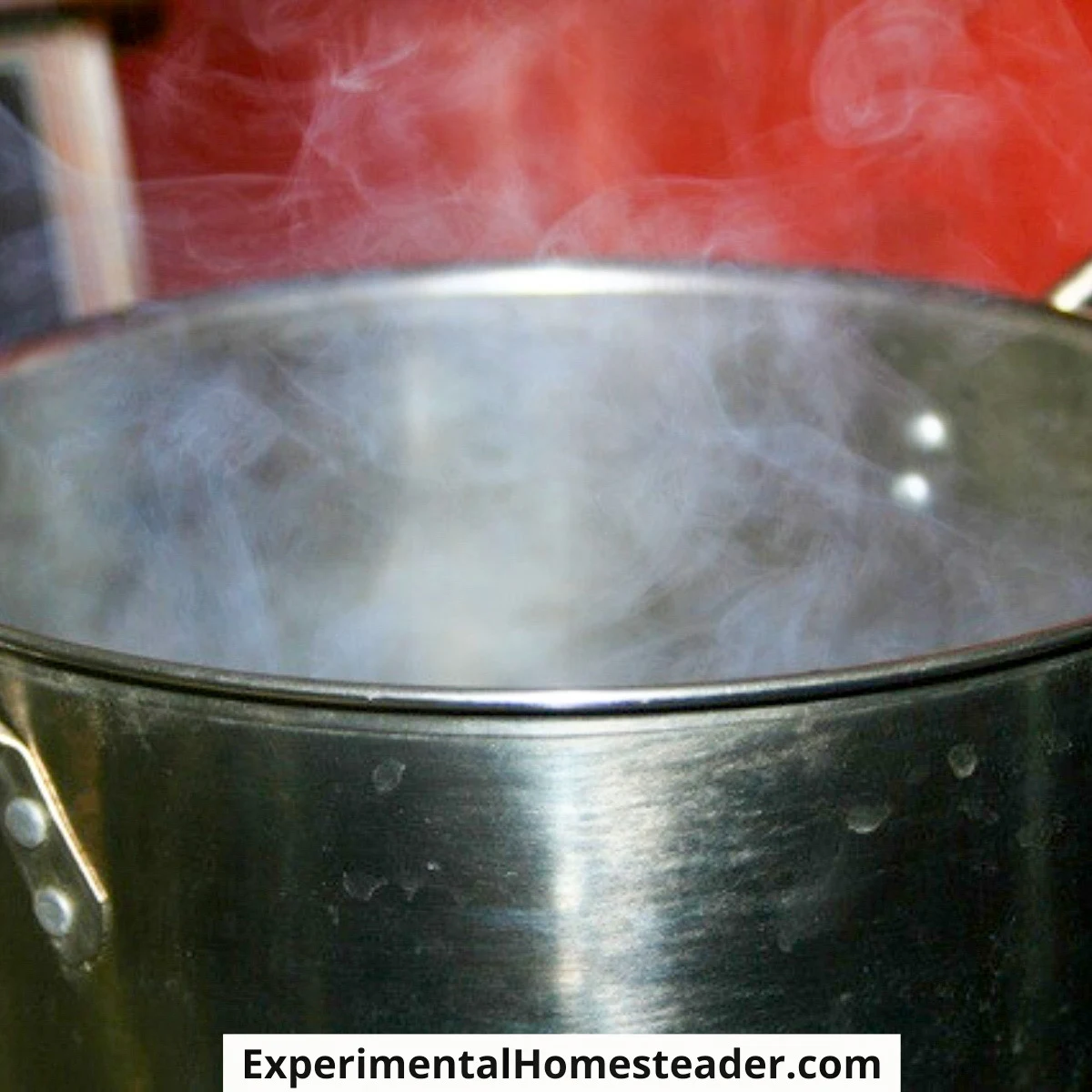
- Set the second pan containing the oil of choice inside the first pan. Keep an eye on it so it does not get too hot.
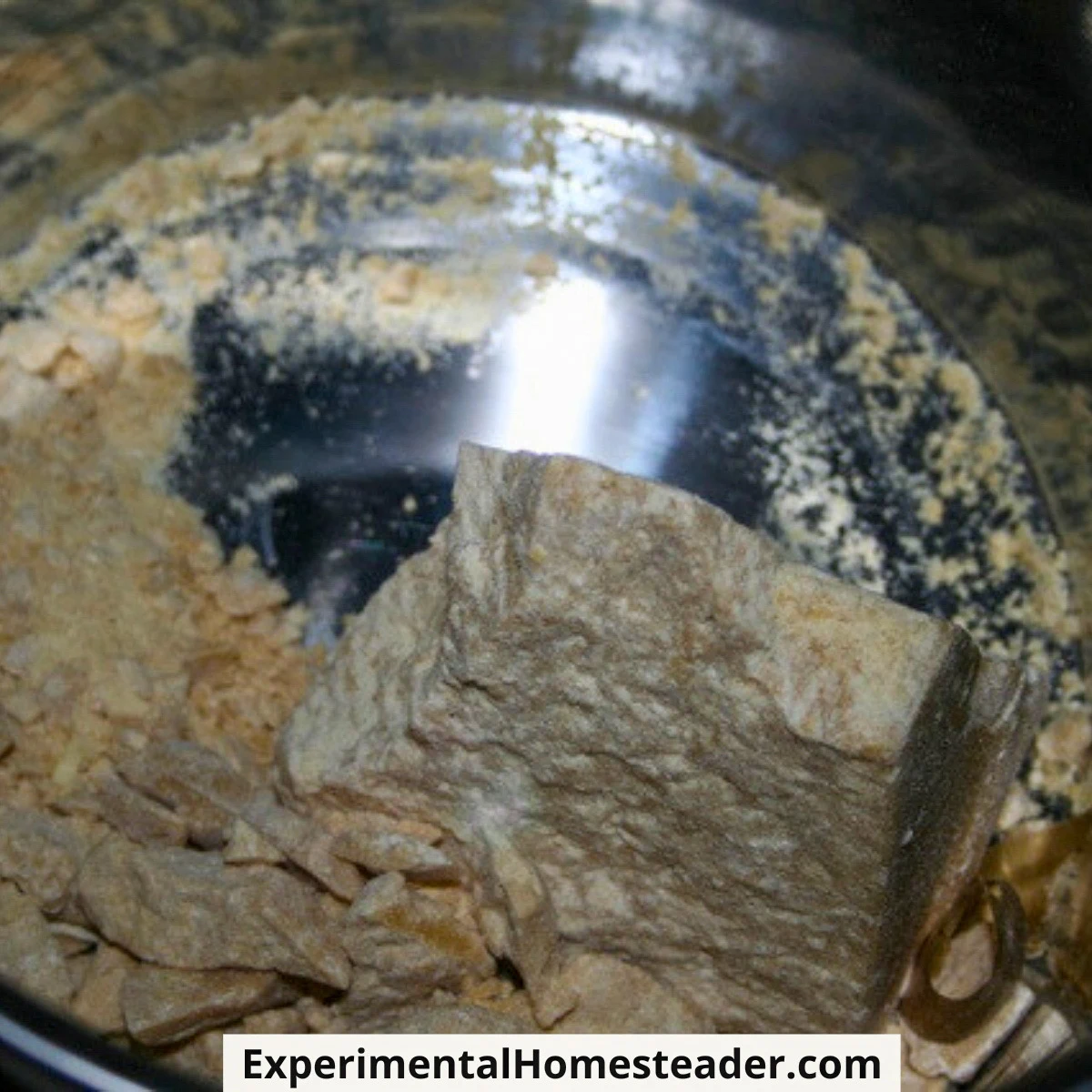
- As soon as the oil begins to melt, lower the heat and keep the oil stirred.
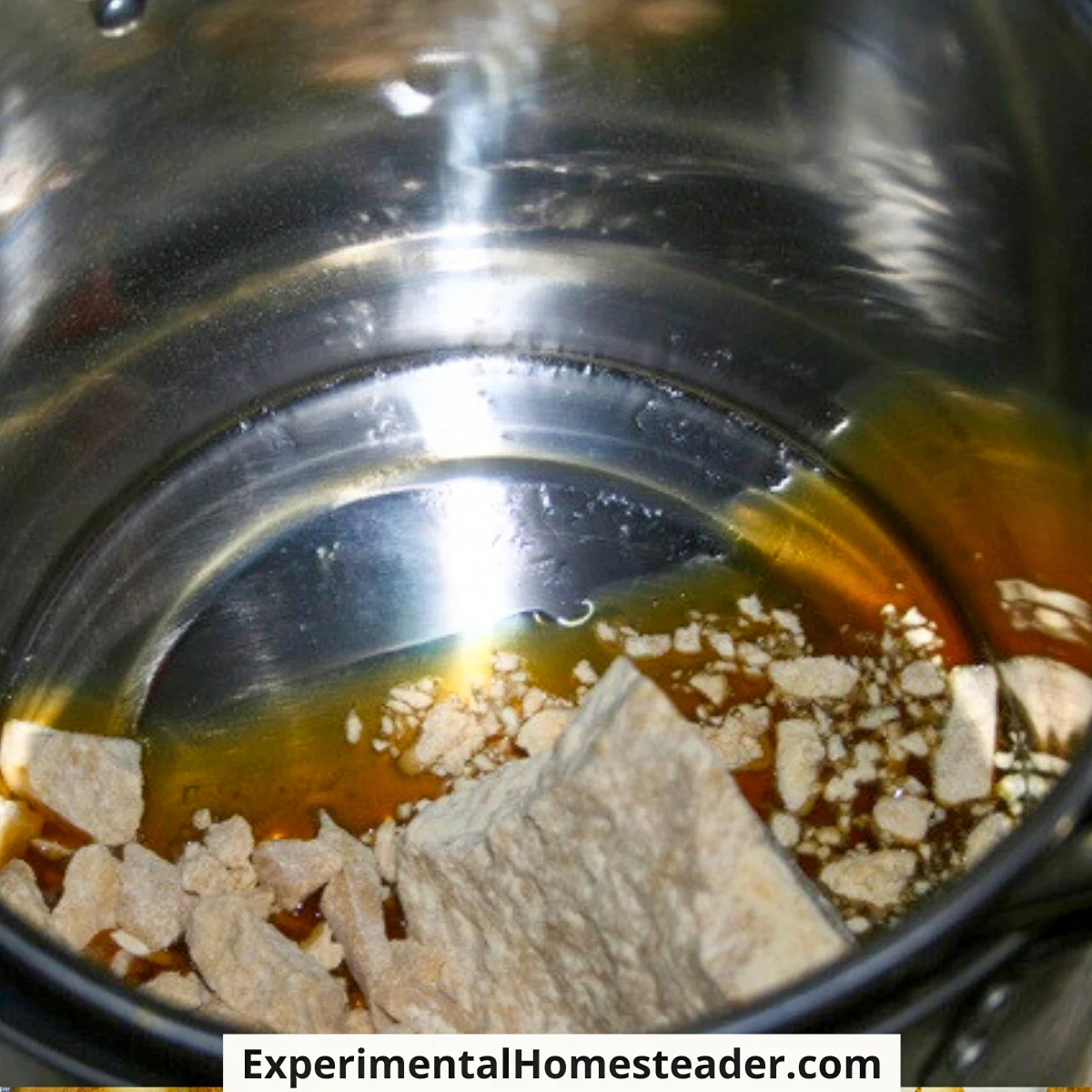
- When the oil is melted, pour it into the pan you put the flowers into.
- You want the flowers completely submerged in the oil. To make sure they do not float on the oil when you are done, set a smaller glass pan inside the larger pan that contains the oil and flowers.
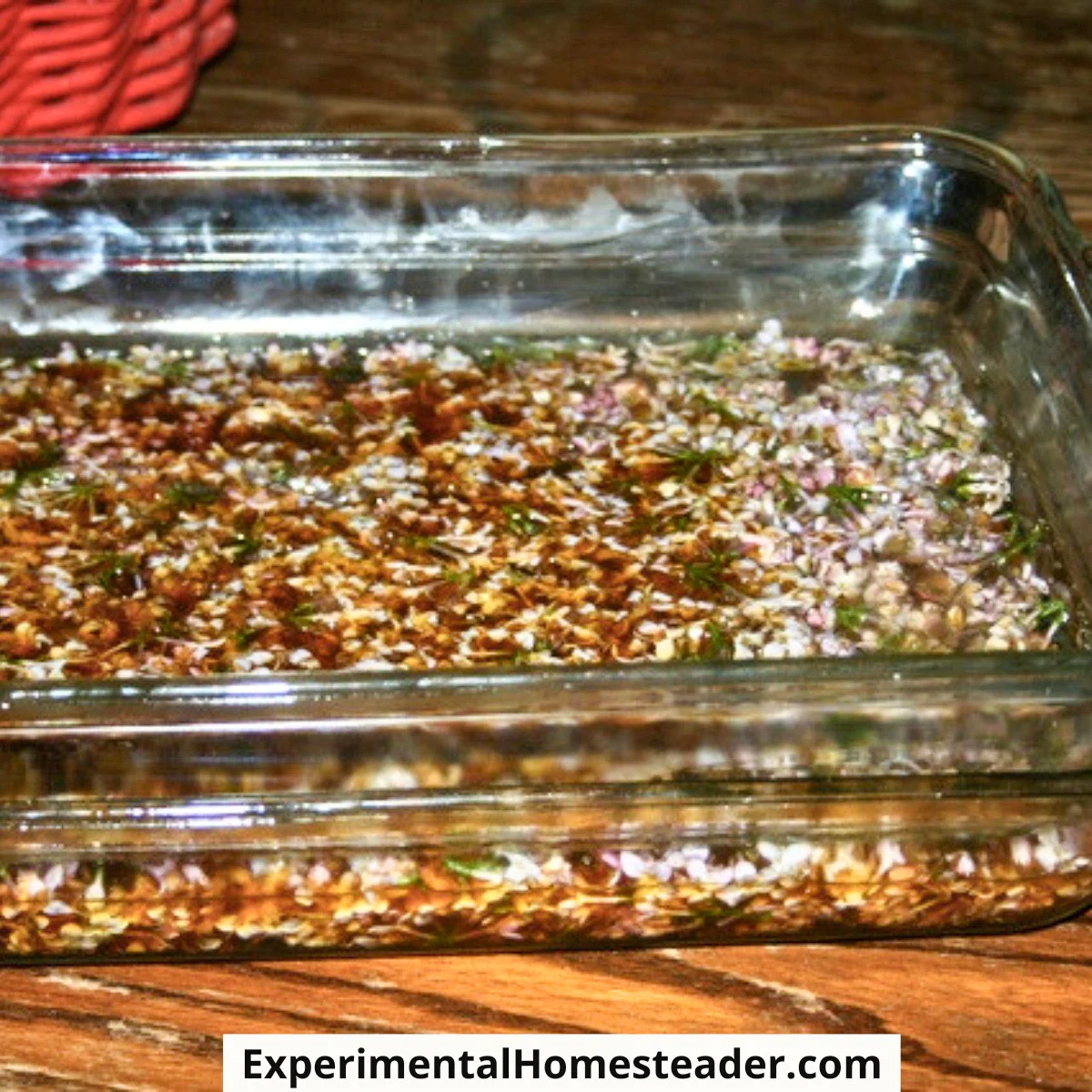
- Remove the pan before the oil completely dries or you will have a problem separating the two pans.
- Cover the pan with a lid or plastic wrap to keep dust and debris out while the cocoa butter hardens.
- Allow this to sit for a few days to absorb the scent of the flowers.
- Remove any spent flowers and add new ones as necessary until the cocoa butter takes on a strong enough scent to suit you. This process can take up to two weeks or longer depending on how many times you melt the cocoa butter down, strain out the flowers and add new ones to the cocoa butter.
- Once the cocoa butter has absorbed enough scent to suit you, cut it up and melt it - flowers and all, using the double boiler method.
- Stain the cocoa butter using cheesecloth to remove the plant material. Be sure to squeeze all the oil from the cheesecloth so you do not lose any.
- Pour the melted, strained cocoa butter back into a clean pan and allow it to harden again.
- Once it is hard, cut it up and place it in a sealed container in a cool, dark place until you are ready to use it.
Recommended Products
Sheri Ann Richerson is a participant in the Amazon Services LLC Associates Program, an affiliate advertising program designed to provide a means for sites to earn advertising fees by advertising and linking to Amazon.com.
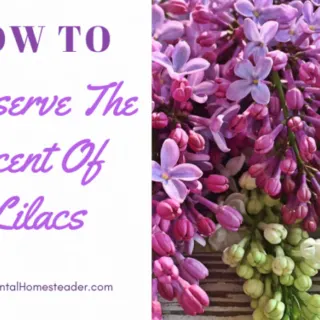
Lilac Absolute Of Essence
Materials
- Lilac flowers
- Ethyl alcohol
Instructions
- To make an absolute of essence, submerge the dry, fresh lilac flowers in ethyl alcohol. Ethyl alcohol is pure wood or grain spirits.
- Allow the lilac flowers to soak for several days making sure they remain submerged in the ethyl alcohol, then remove them by straining the liquid through cheesecloth.
- The leftover liquid will be slightly scented.
- Do not cover the absolute once the flower material is removed. The alcohol will evaporate over time and the only thing left will be the absolute which can be used in aromatherapy, natural medicine or natural perfume making.
Recommended Products
Sheri Ann Richerson is a participant in the Amazon Services LLC Associates Program, an affiliate advertising program designed to provide a means for sites to earn advertising fees by advertising and linking to Amazon.com.
Potpourri And Natural Fragrance Extraction
How To Make Lilac Potpourri
Learn how to make lilac potpourri using flowers from your own garden. Also learn how to dry the flowers, refresh the scent and make the potpourri last.
How To Use Hydrosols
Many natural skin products contain hydrosol instead of essential oil. Learn how to use hydrosols in your everyday life plus find out where they come from.
Lemon Balm Essential Oil Extraction Techniques
Make your own scented oils and hydrosols with plant material from your own garden using essential oil extraction techniques.



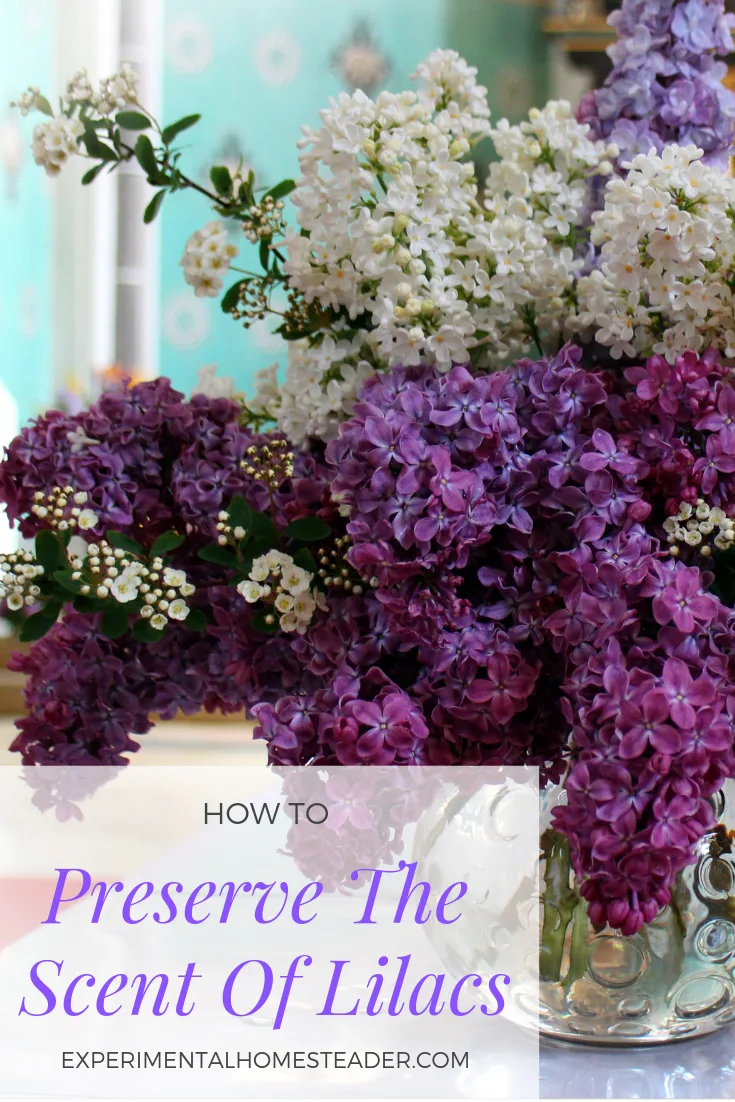
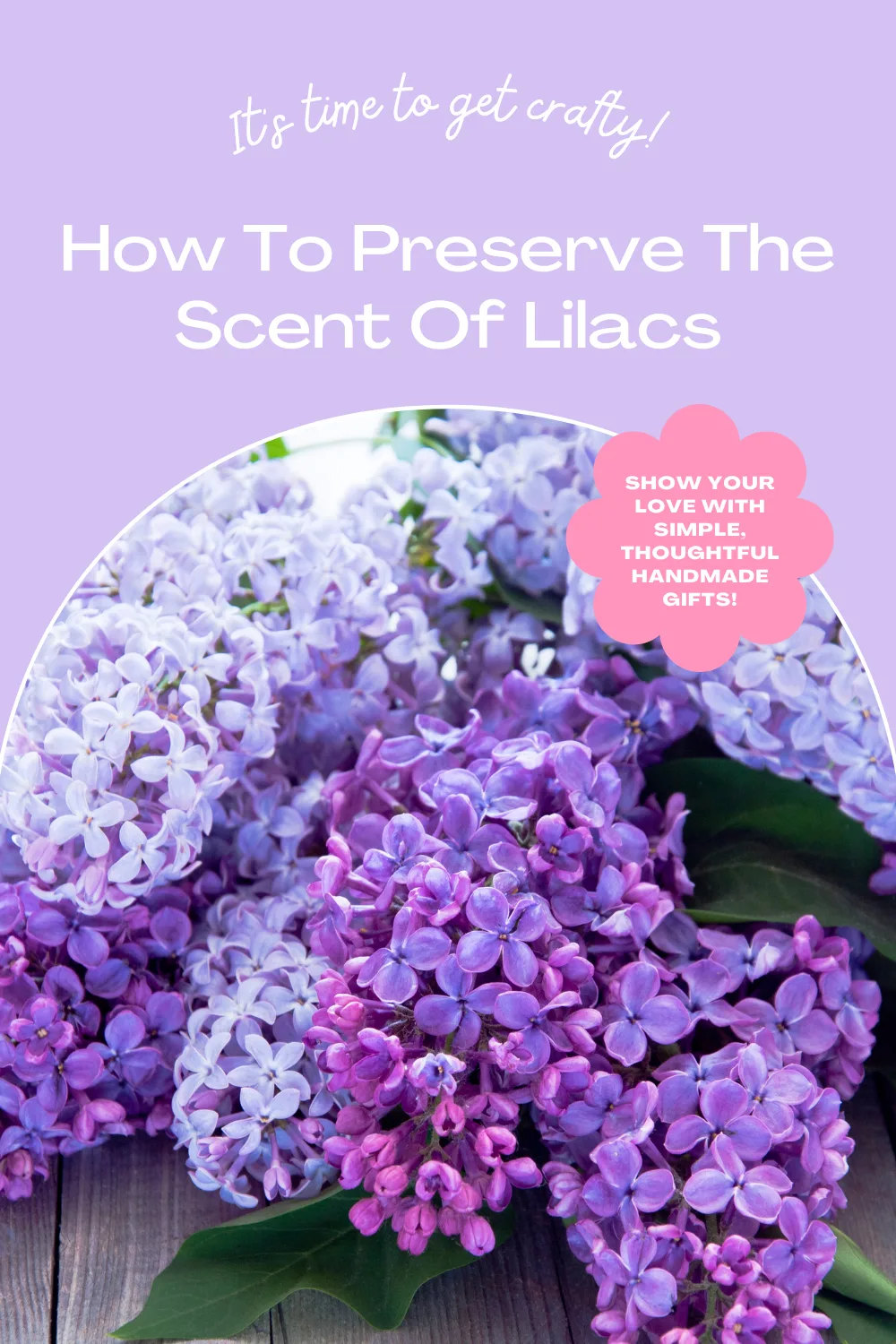
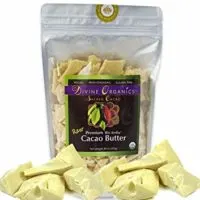

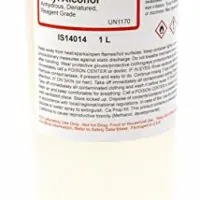
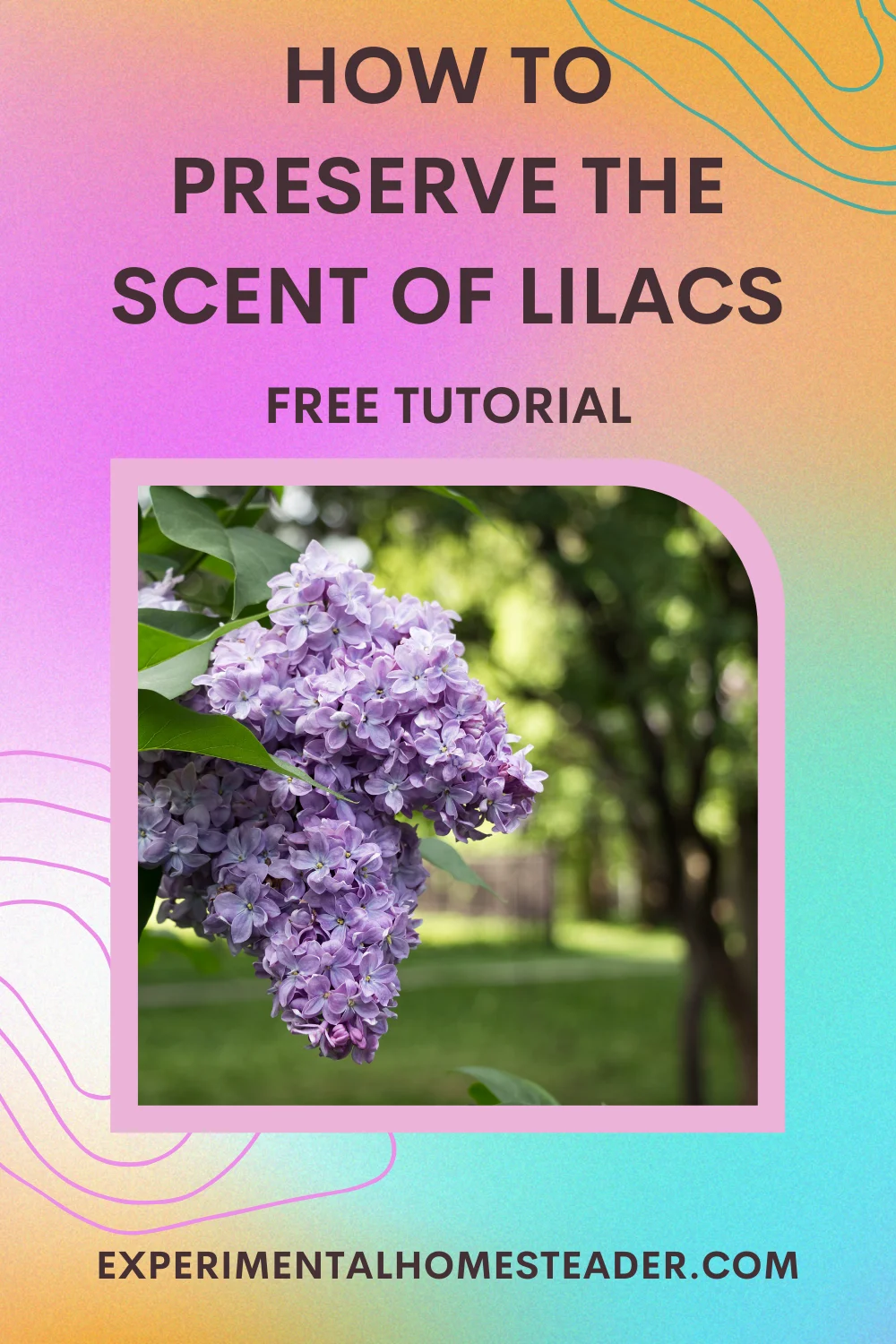
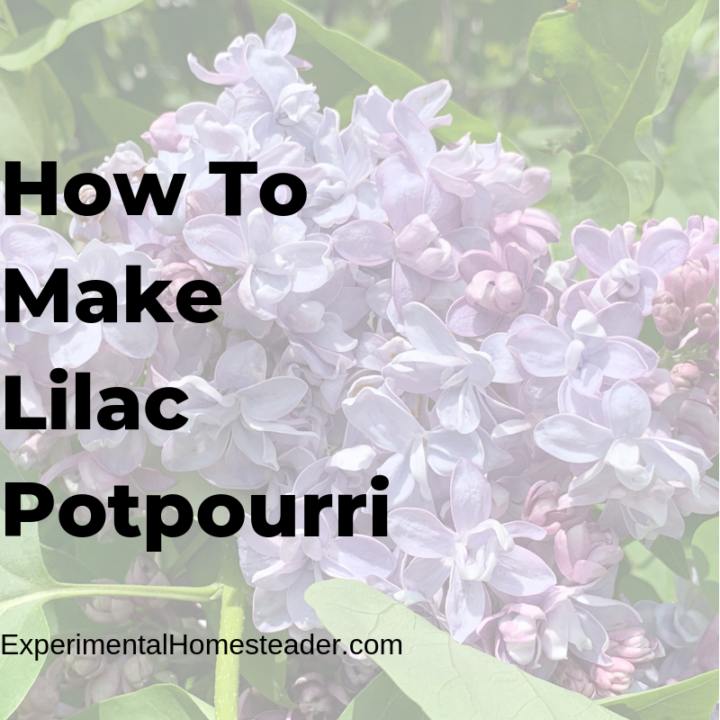
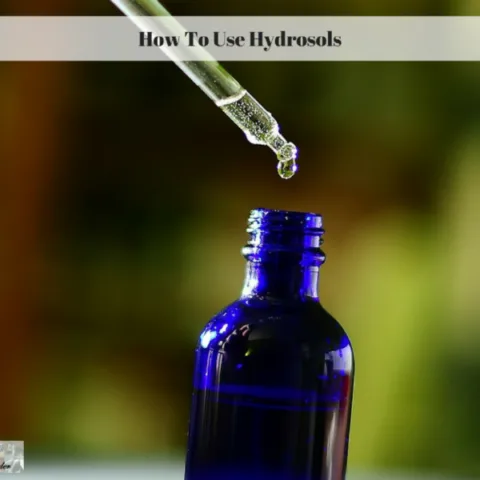
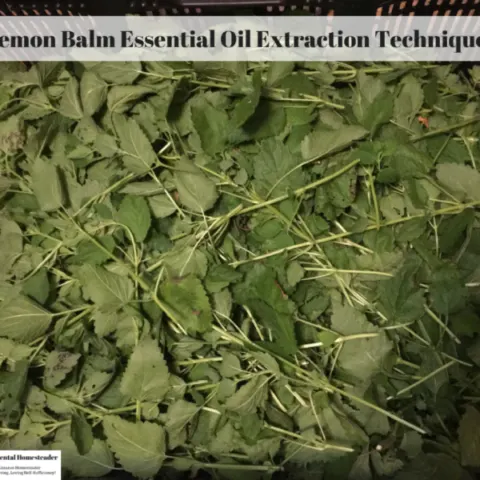
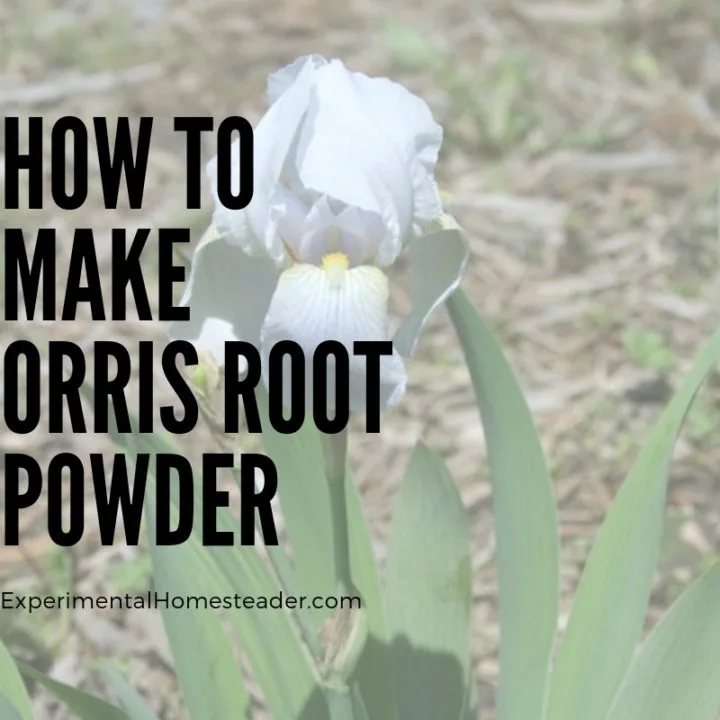



Laura
Wednesday 25th of May 2022
Sheri- yes this is much more clear to me now. The coca butter has a bit of a strong scent itself, so I think I may need to repeat the process a few times. Now it's a race against time....
Thanks again.
Sheri Ann Richerson
Friday 17th of June 2022
I am so glad I was able to clarify some things for you. Yes, cocoa butter is pretty strongly scented. I had to repeat the process several times myself. There are some repeat blooming lilacs. I don't think the scent is as strong as the old fashioned variety, but they do still have a scent.
Laura
Tuesday 17th of May 2022
Hi,
Reading this now as our lilacs are in bloom and I'm anxious to try to preserve t eh scent for soap-making! In steps 12 of the enfleurage method, how do you remove spent flowers and add more flowers- isn't the product hard? And step 11- what's happening between the few days it may take to absorb the scent, and the two weeks the whole process may take?
Thanks so much. This is the only article I've found that gives me hope that it's possible to save the scent of lilacs.
Sheri Ann Richerson
Wednesday 18th of May 2022
Yes, the product will get hard.
I remelt the product using a very low heat and a double boiler so the flowers can easily be strained out.
I guess I need to clarify the instructions.
If you are not happy with the scent after a few days, you can remove the flowers and add more to the same cocoa butter. This allows you to get the scent as strong as you like. It might require you to repeat the entire process of remelting the cocoa butter, straining out the spent lilacs and adding more fresh lilacs to the pan over the course of a couple weeks.
Does that make sense?
Justin
Monday 14th of June 2021
Great post! Can you do this with Coconut Oil? Anyway you could mix the two together afterwards - with or without the alcohol evaporated?
Sheri Ann Richerson
Tuesday 15th of June 2021
Thank you! Yes, you could use coconut oil if you wish.
Aja
Thursday 21st of May 2020
Would beef tallow work?
Sheri Ann Richerson
Wednesday 3rd of June 2020
Beef tallow typically has a smell. It would most likely change the overall smell. It can, of course, be rendered and purified to remove the smell if you want to go to that much work. So, yes, it would work.
Jen
Sunday 2nd of June 2019
Would Shea butter work for the enfleurage process?
Sheri Ann Richerson
Monday 3rd of June 2019
Hi Jen,
Shea butter would work just fine.
Sheri Ann